Weightlifting Myths for Women
Sort fact from fiction concerning the most commonly held weightlifting myths for women.
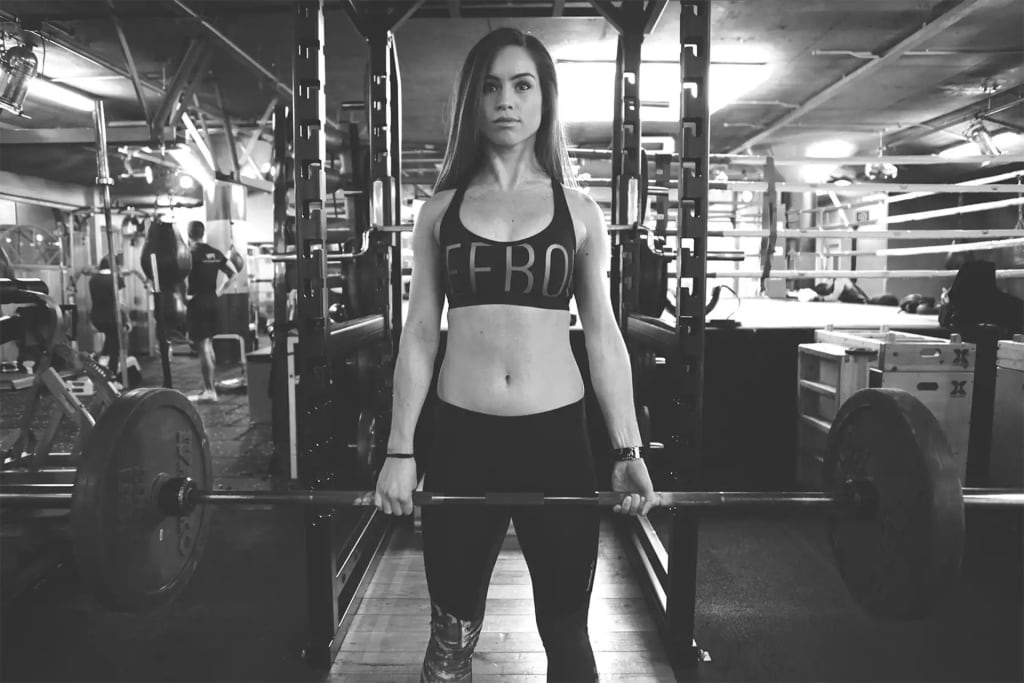
Within the bodybuilding culture, falsehoods and misinformation exist for both sexes, but there are some weightlifting myths for women specifically. Should women lift? Will they be seen as masculine? If women drink a gainer protein shake will she bulk up? Why are some women leery of the weight room? Many women say ‘I don’t want to look like those women in the muscle magazines, that is why I don’t lift.’ Can females follow the same lifting protocols as males? We hope to demystify weightlifting myths for women that are prevalent among female gym goers. If you have ladies who lift at the same gym you do, you are a female who lifts, or know one who was thinking about starting we hope these weightlifting myths for women helps you sort fact from fiction.
Pumping iron will make you big and bulky.
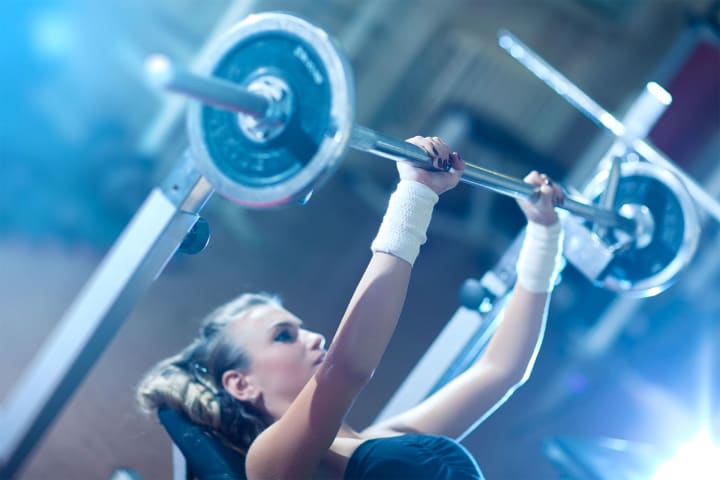
This enduring myth is one of the most common reasons women give for avoiding heavy weights. Lifting weights will not, by itself, make women bulk up and here is why. Men have far more free or bioavailable testosterone than women, like 10 to 20 times as much. Testosterone is the hormone that will allow a man to build large muscles relatively quickly. It is the reason why men are generally much stronger and usually have less body fat then women.
Women who lift weights have a hard time building muscle and making gains and can not build even half of the muscle that male weight lifters do. The buff women in bodybuilding magazines have likely used injections and other artificial means to get the bulk they have. They also train everyday for several hours. A woman who trains 3 to 4 times a week for about an hour will become toned and defined, but not bulky. Remember, muscle is four times smaller then fat, so when you burn body fat and build muscle you have to build a whole lot more muscle to build compared to the fat you lost to have the net effect of being bigger then when you started.
Weightlifting won’t burn calories and fat like cardio.
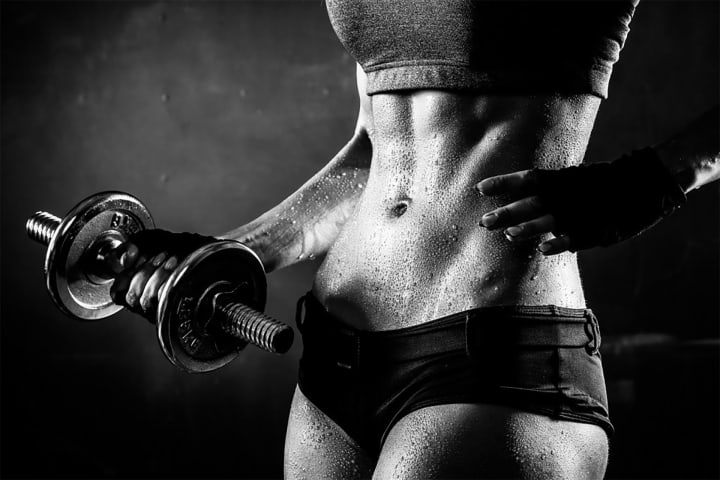
There is more to the fat burning equation then what happens at the gym. Your body burns calories and potentially body fat all hours of the day. Of course how many calories you consume is one part of the equation. But what burns more calories over the course of a day for a person who only engages in cardiovascular exercise vs. a woman who weight trains?
Researchers comparing a cardio workout to a High Intensity Interval Training (HIIT) workout found that while technically the high intensity workout burned more calories after the workout and over the next several hours, the amount was not significant. Both aerobic and anaerobic exercise will burn calories and have the potential to use fat stores. It is also not an either or decision. You can do both cardio and resistance training in the same workout, or alternate days.
Strength training has some properties not as easily gained by doing cardio and will shape and define the muscles of the body more so then cardio which most people agree looks better. Cardio workouts on a stationary machine like an elliptical trainer or treadmill only work a limited set of muscles and will not add to overall body definition. Lifting has the potential to work all areas of the body if you choose a balanced and well planned routine. The bottom line is this, in order to burn body fat you must use more calories then you consume, regardless of if the calories are used during cardio or weightlifting.
Lifting heavy weights is dangerous for women.
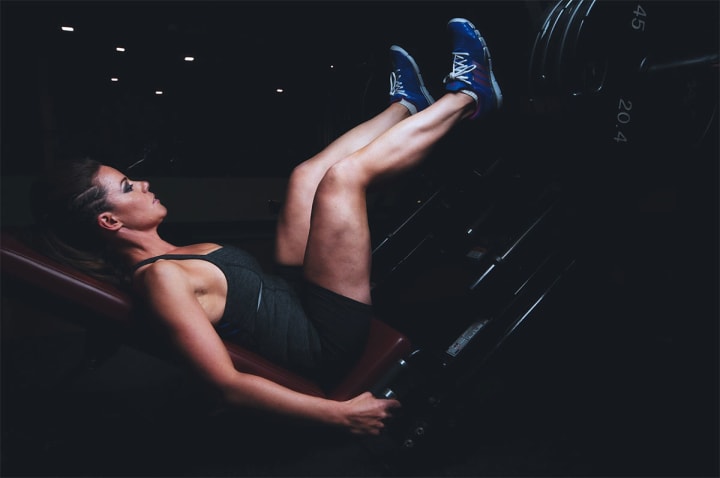
Lifting heavy weights can potentially be dangerous for anyone if done improperly. It is also be safe for women so long as the woman is using a suitable weight and correct form. The same holds true for men. Injuries from weightlifting do not happen only to women. Barring pregnancy or other medical conditions a woman should lift using the heaviest weight she can lift 12 to 15 times without discomfort. The point of resistance training s to work the muscle up to the point of failure, that is what triggers muscle strengthening.
While debunking this weightlifting myth for women we discovered that weightlifting can help a woman from being injured as she ages because the activity increases bone density. Nearly two dozen studies demonstrate that while all types of exercise help improve bone density, ‘resistance training may have a more profound site specific effect than aerobic exercise.’ In other words, the bones your muscles are connected to are strengthened in response to the load you place on those muscles. The body has amazing adaptive abilities and this is a great demonstration of that.
Lift weights if you want to look like a guy.
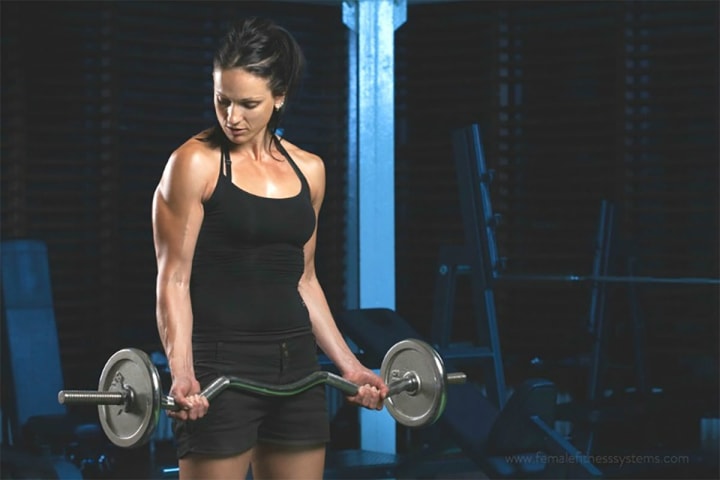
This is simply not the reality. As we said earlier, women do not have the hormonal makeup to sculpt and build their physique into a masculine form. The women in fitness and weightlifting magazines who have a more masculine appearance have that look on purpose. They train hard every day and are likely using artificial means to create that look.
Natural female athletes such as UFC fighter Ronda Rousey train extensively, including lifting weights and still do not have muscles or the body of a man. If she did she would not have modeled for the infamous Sports Illustrated Swimsuit Issue for 2016 where she looks very feminine indeed.
To see results you need to spend hours lifting.
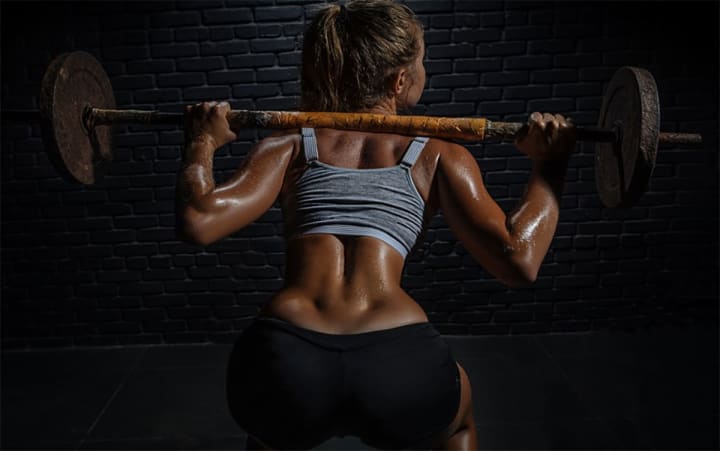
No, you don’t. The problem some women have when they are not seeing results may not have to do with time. They may not be lifting a weight that is heavy enough to challenge the muscle they are working. To see results the muscle needs to be worked to the point you feel muscle fatigue in the last few reps.
Women grow up being told they are the weaker sex, allowing men to open doors and peanut butter jars, kills spiders and all of those things. There is nothing wrong with these things, and men are in fact stronger. But when women apply this mentality to weight training it might cause them to choose lighter weights and thwart their progress. So, be a lady in the street and a warrior in the gym. Use a weight that challenges you, not one that is so heavy you can not complete a set, just heavy enough to feel like you might not. When the weight is no longer challenging, adjust upwards. Your routine should always be open to adjustment.
Female bodybuilders need special supplements.
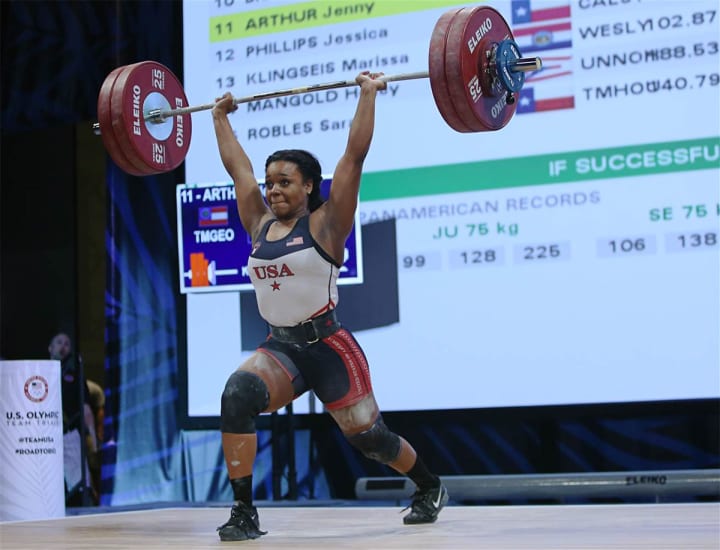
Marketing companies would have you believe that women need different supplements then men. Barring medications and therapies prescribed to men only by their doctor, women can take the same supplements men take and for the same reason.
For many years women would shy away from taking creatine, believing it was a ‘muscle building’ supplement for men. Creatine actually works on the cellular level, providing the building blocks of ATP which cells use for energy. So you may be able to lift more weight or recover faster using creatine. Studies have also shown creatine helps women ward of depression.
One Australian supplement manufacturer admitted the reason they created a line of protein supplements for women is because “We find that women don’t like to buy those massive 4kg tubs. They like to buy smaller things more regularly. And they ask more questions about how the product tastes…” So, the company made a protein powder supplement that had more appealing packaging so women would buy it. Kate Pumpa, an associate professor in nutrition said, in the very same article, that “there’s not much difference between supplements that are labeled as ‘female’.”
Women in the weight room are there to ‘lose weight’.
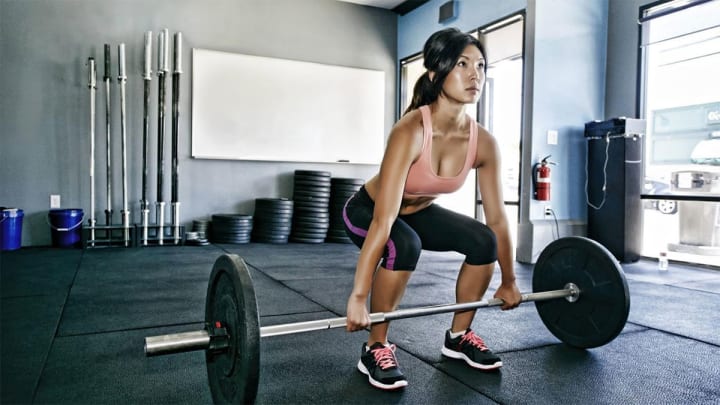
This myth is geared toward what other people think about women who use weights in their fitness routine. Not every woman who is at the gym is there to lose weight. Not every female who lifts weights does so to lose weight. The reasons are as varied as they are personal, but the assumption that weight loss is the only goal prevails. A woman may want to be stronger or shapelier or maybe she likes the social aspect of her particular club. There are many reasons women workout with weights.
If your are a trainer, a gym owner or a friend of a woman who lifts, don’t automatically assume she is lifting to lose weight, you just might be mistaken and it can be alienating to give her advice on how she can ‘get lean’ if that is not her goal. You may also miss a genuine opportunity to help her with her actual goals when you make a false assumption about what those goals are.
About the Creator
George Gott
Writer & Social Media Editor for Jerrickmedia who is an avid reader of sci-fi and a fierce defender of women, minority, and LGBTQ rights.
Enjoyed the story? Support the Creator.
Subscribe for free to receive all their stories in your feed. You could also pledge your support or give them a one-off tip, letting them know you appreciate their work.






Comments
There are no comments for this story
Be the first to respond and start the conversation.